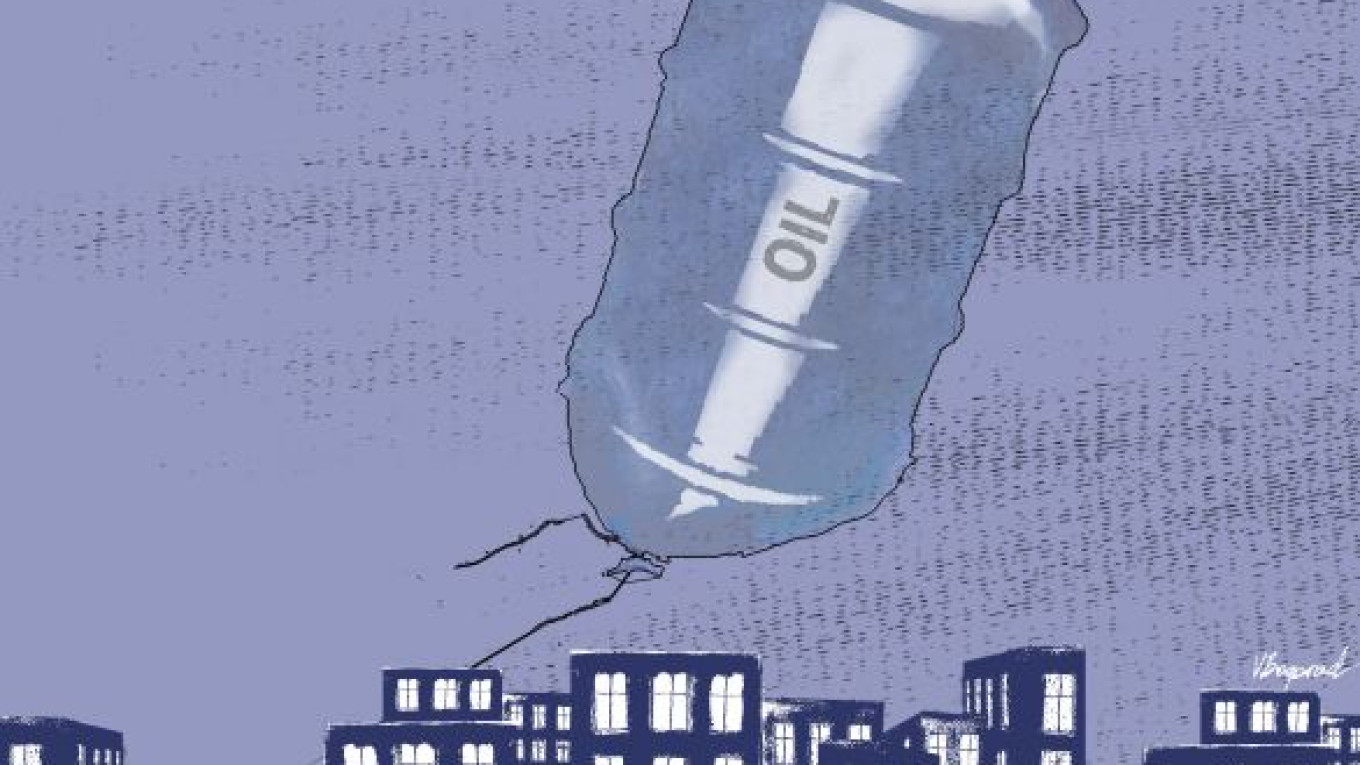As Russians voted for a new president on Sunday, their country was back in fashion with foreign investors.
The ruble has gained 12.2 percent against the dollar-euro basket since this fall and is not far from its post-2008 crisis high. The rebound of stock prices since the beginning of the year has been an impressive 13.7 percent in ruble terms for the MICEX, and an even more impressive 25.4 percent in dollar terms for the RTS.
Given that the balance-of-trade surplus is running at 12 percent of this winter's gross domestic product, the strength of the exchange rate looks plausible and will probably continue provided there is no new crash of the oil price and imports do not go through the roof once again. To be sure, neither of these two risks can be ruled out and must therefore be watched closely.
The stock market, valued at a price-to-earnings ratio of 5.9 on the basis of last year's earnings and at a price-to-book ratio of 1.03, is fundamentally on firmer ground than the exchange rate. But, of course, the stock market is hostage to oil prices.
At the same time, however, the country's fixed income markets remain neglected. The ruble-denominated government OFZ November 2021 bond, for example, yields nearly 8 percent and has thus a rather high real return, particularly considering the fact that consumer price inflation had been just 4.2 percent year over year in January. Equally, the dollar-denominated April 2020 government eurobond with a yield of 3.98 percent is about 250 basis points higher than that of a comparable U.S. Treasury note.
Nonetheless, Russia has a bad reputation among investors, despite the government's budget surplus and minuscule debt levels. On the whole, this bad reputation is undeserved.
The real estate market has probably bottomed out, but there are wide regional disparities. Moscow is where all the wealth and the population growth is concentrated, while the regions continue to struggle. Meanwhile, the Central Bank hesitates to cut interest rates because it doubts that inflation can remain so low. Judging by the strength of the ruble and falling import prices, the inflation outlook is actually quite good. To buy real estate as a hedge against inflation does not make sense in such an environment.
Economic growth is certainly fairly moderate. Real GDP had expanded by 4.3 percent in both 2010 and 2011, and it is generally expected to increase by another 4 percent this year. Before the 2008-09 crisis, growth rates had averaged about 7 percent. This suggests that capacity utilization remains low. A 4 percent growth rate will therefore not cause any serious frictions or imbalances, nor will it lead to an acceleration of inflation. Investors appreciate this new stability. It is much better than wild swings around a steeper trend and may help to explain why the ruble and the stock markets are so strong.
While foreigners have a love affair with Russia, Russians themselves are net capital exporters to the tune of almost $10 billion a month. Technically speaking, in the absence of Central Bank interventions in foreign exchange markets, those $10 billion are the flip side of the current account surplus. Since the Central Bank's foreign reserves have been more or less unchanged at around $500 billion for several months now, the private sector, by definition, must be accumulating foreign assets.
Why is this? One reason is that exporters, in the wake of the recent oil price boom, may feel overwhelmed by the sudden increase of their revenues and have no plans on how to spend these windfall gains. They'd rather park them abroad for a while.
The other reason is more worrying. It could be that the capital exports reflect Russia's uneven income distribution. The country's wealthy may be afraid of a popular backlash — Putin has raised this theme several times recently — and have thus decided to stash away part of their funds in safe places.
The main risk is that high oil prices are not sustainable because it may cause a global recession, which in turn will bring it down, perhaps violently. Apart from this, at an annual growth rate of real GDP of about 2.25 percent since last autumn, the world economy is not exactly booming. Rather than being determined by economic fundamentals, the oil price is mostly a political price these days.
Since the risk of a war between Iran and Israel is overrated, the oil price itself is not well supported. In all likelihood, we are looking at a new bubble. Investors must be aware that they will face an entirely new game once it pops, and they would be wise to remember the age-old axiom: Bubbles always pop.
Dieter Wermuth is a partner at Wermuth Asset Management.
A Message from The Moscow Times:
Dear readers,
We are facing unprecedented challenges. Russia's Prosecutor General's Office has designated The Moscow Times as an "undesirable" organization, criminalizing our work and putting our staff at risk of prosecution. This follows our earlier unjust labeling as a "foreign agent."
These actions are direct attempts to silence independent journalism in Russia. The authorities claim our work "discredits the decisions of the Russian leadership." We see things differently: we strive to provide accurate, unbiased reporting on Russia.
We, the journalists of The Moscow Times, refuse to be silenced. But to continue our work, we need your help.
Your support, no matter how small, makes a world of difference. If you can, please support us monthly starting from just $2. It's quick to set up, and every contribution makes a significant impact.
By supporting The Moscow Times, you're defending open, independent journalism in the face of repression. Thank you for standing with us.
Remind me later.


